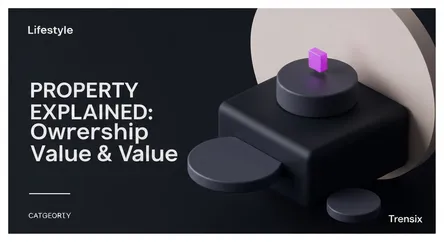Lifestyle
Property Explained: Ownership & Value

Explore the concept of property, from physical land and buildings to the legal rights of ownership. Understand its impact on wealth and society.
What is it?
Property, in a real estate context, refers to land and any permanent structures attached to it, like buildings. More importantly, it encompasses a "bundle of legal rights" associated with that physical asset. These rights typically include the right to possess, control, enjoy, and dispose of the land and its improvements. Property can be categorized as residential (homes), commercial (businesses), or industrial. It is a foundational asset class in the global economy and a primary component of personal and national wealth.
Why is it trending?
Property is a constantly trending topic because it is directly tied to economic health, investment strategies, and societal shifts. Fluctuations in interest rates, housing inventory shortages, and inflation keep it in the news. The rise of remote work has also fueled new trends, with people relocating from major urban centers to suburban or rural areas, altering market dynamics. As a tangible asset, property is often seen as a hedge against inflation, making it a popular investment vehicle during times of economic uncertainty.
How does it affect people?
Property ownership is a significant milestone that profoundly impacts an individual's financial stability and lifestyle. It provides a sense of security and is a primary means of building long-term, generational wealth. However, the high cost of entry and the responsibilities of maintenance can also be a source of significant financial stress. For entire communities, property values influence local taxes, school funding, and public services, making it a critical factor in social and economic inequality.